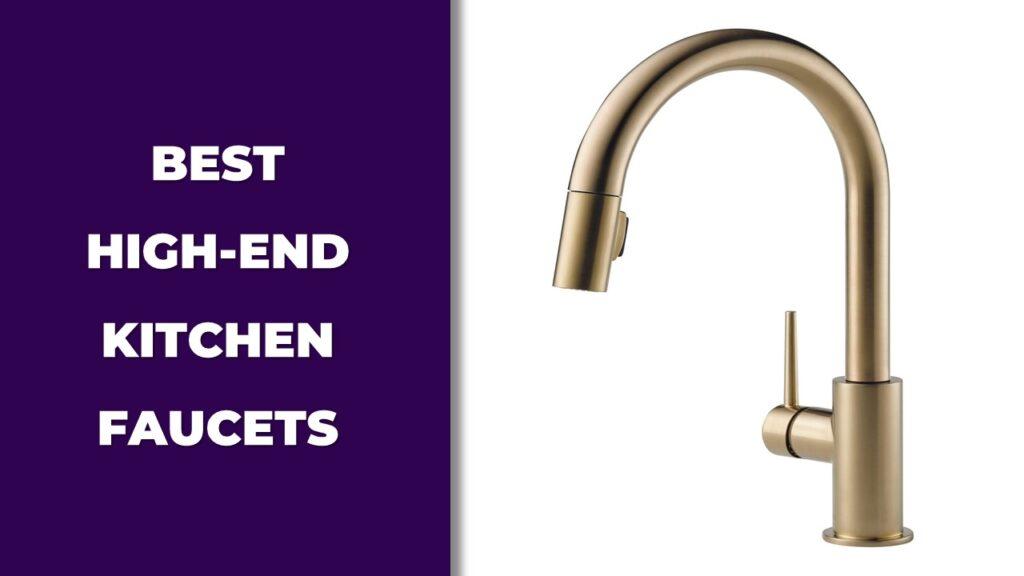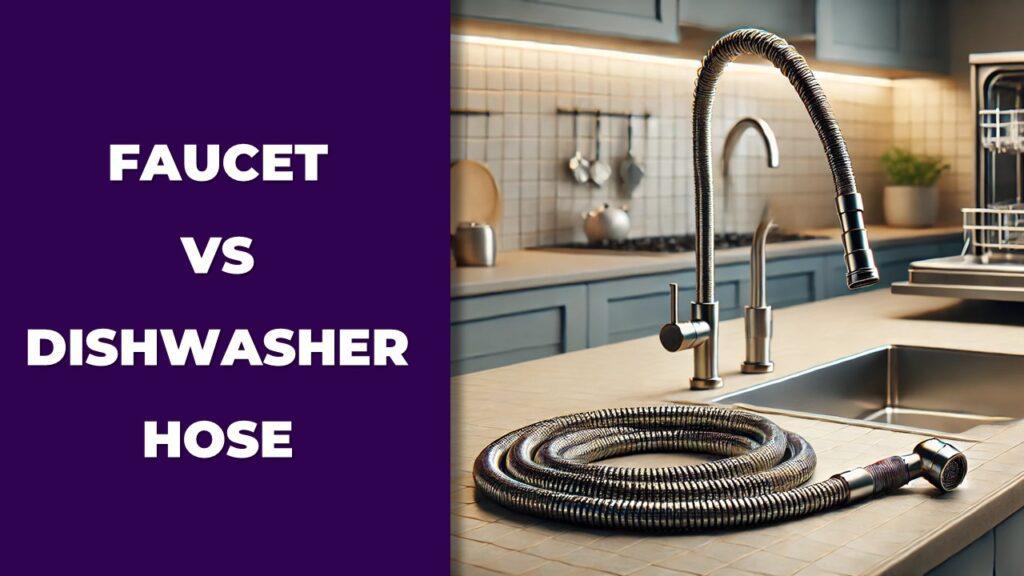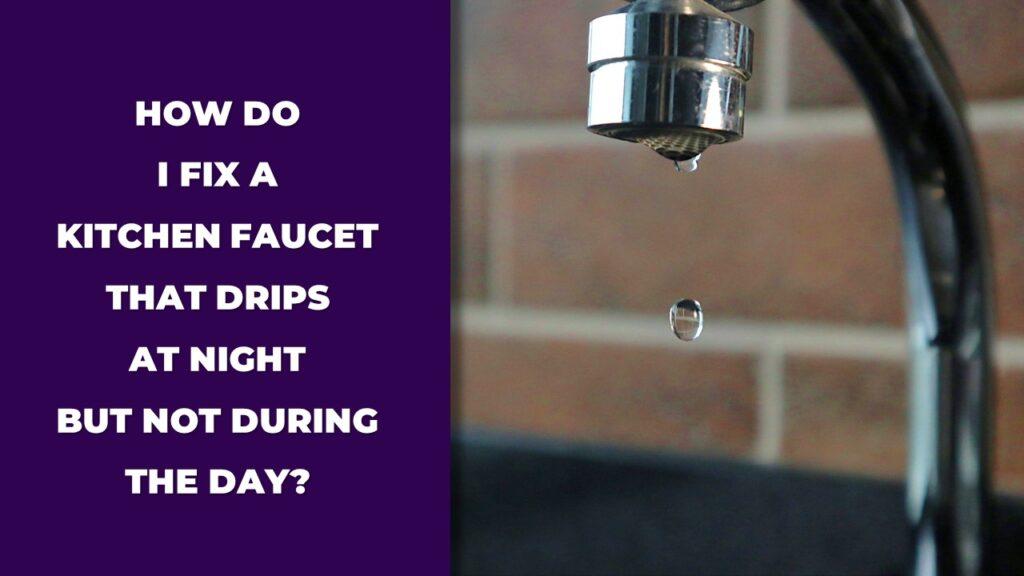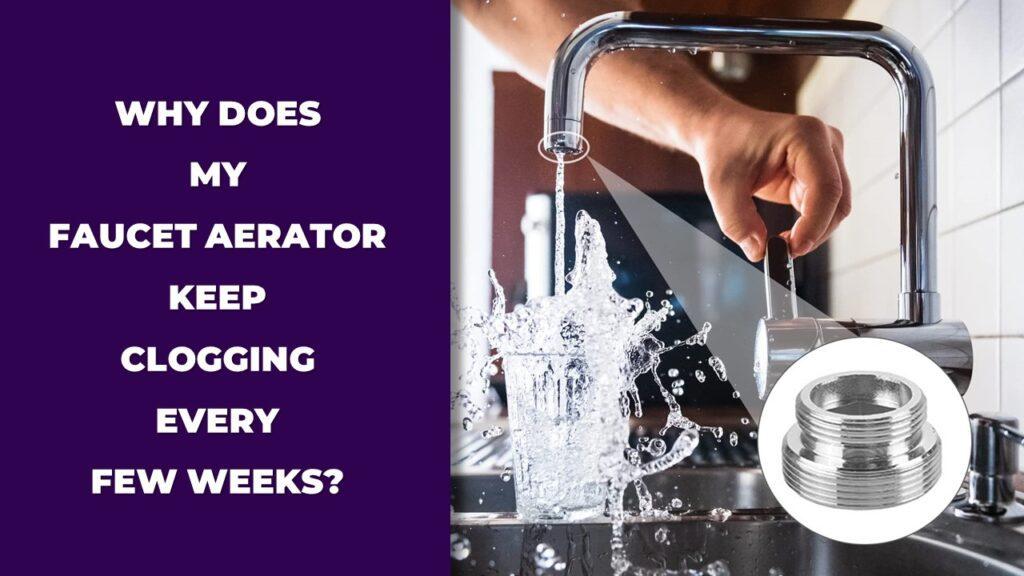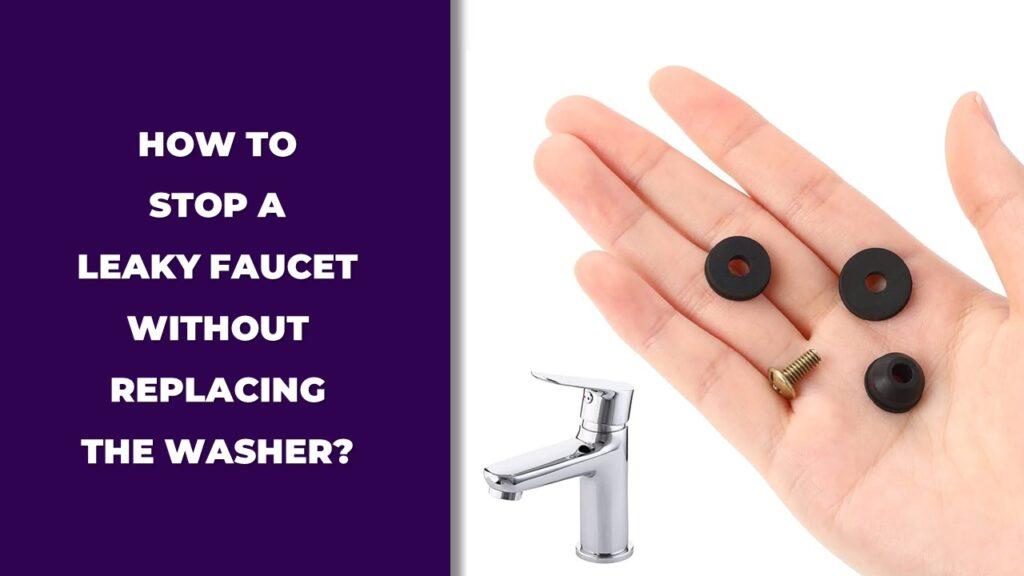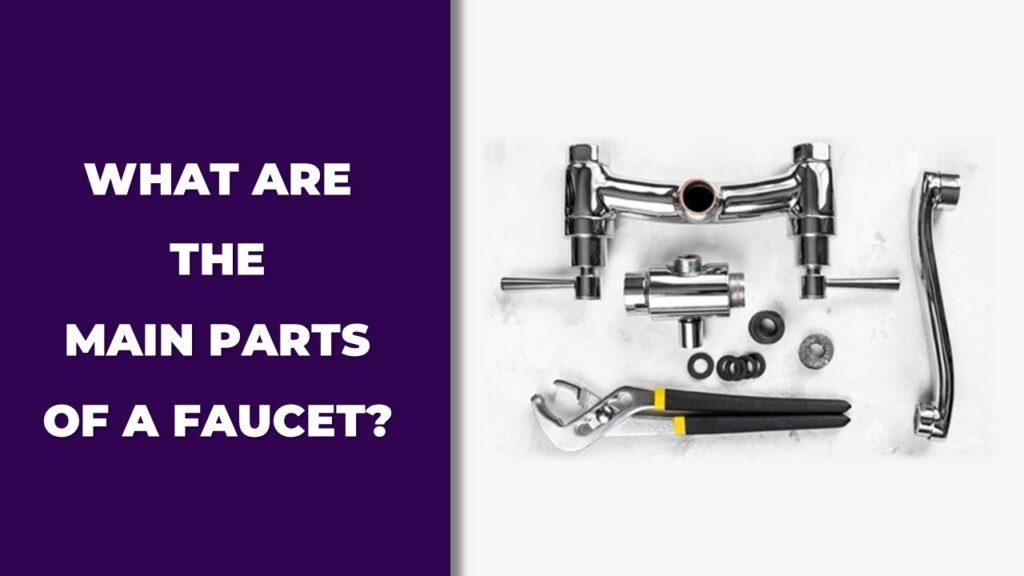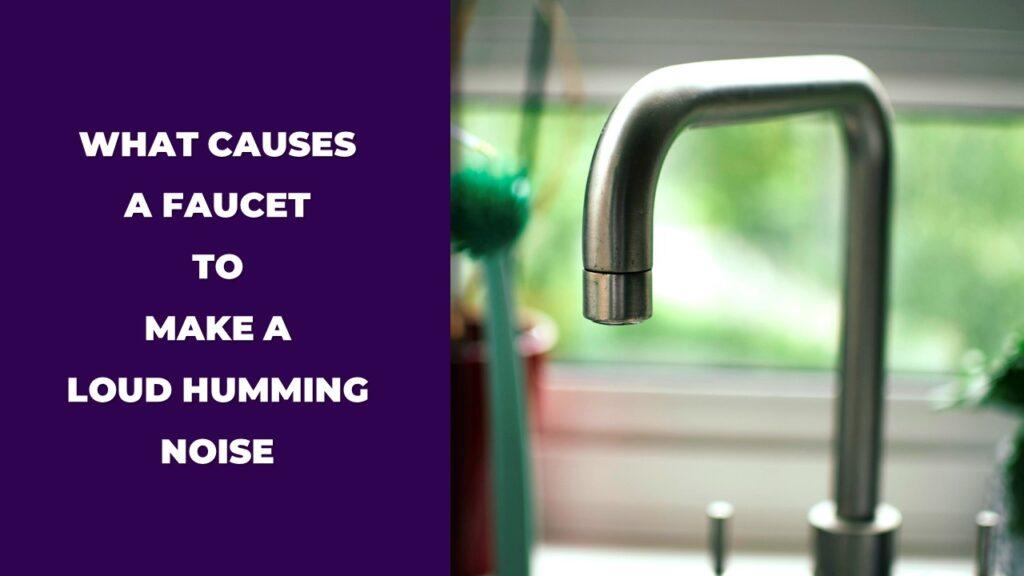
So, what causes a faucet to make a loud humming noise? The short answer: it’s usually a water pressure issue, a loose part inside the faucet, or air trapped in your plumbing lines. In some cases, it could even be a worn-out washer or cartridge vibrating when water flows through. These hums and buzzes can show up out of nowhere and make it sound like your pipes are singing—or complaining.
Now, we get it. That noise is annoying. It makes you pause and wonder, “Is something about to burst?” or “Do I need to call a plumber right now?” Don’t worry. Most of the time, it’s nothing dangerous—and you can often fix it yourself without touching your wallet too hard.
In this guide, I’ll walk you through every possible reason your faucet might be humming. We’ll talk about what to check, how to fix it, and how to keep it from coming back.
What Does a Loud Humming Faucet Sound Like and Why It Happens Suddenly?
Let’s be real—when your faucet starts humming out of nowhere, it’s not exactly music to your ears. One minute everything’s normal, and the next it sounds like there’s a small machine buzzing in your wall.
You might notice things like:
- That deep, vibrating hum that kicks in only when the tap’s running—kind of like a soft motor or an old fan.
- A weird buzz or low drone that stops the second you turn off the water.
- A pulsing sound that changes if you open the tap more or less.
- Only the hot water side making the noise while cold runs quietly (or the other way around).
- The hum getting louder at night when your house is quiet and pressure rises.
- A moaning or vibrating tone after recent plumbing work—something we’ve also seen happen with metering cycle faucets as they adjust to changing pressure.
- Sounds that echo faintly from inside the wall, not just the faucet.
It’s strange, sure. But most of the time, it’s your faucet (or plumbing) giving you a small warning that something’s off—not something breaking in real time.
Why Does My Faucet Make a Loud Humming Noise?
If your faucet is humming like it’s trying to join a band, there’s usually a reason—and it’s often fixable without calling in a pro. You don’t need to be a plumber to figure out what’s going on. Here’s what could be behind the noise, plain and simple:
- High Water Pressure: When the pressure’s too strong, water shoots through the faucet faster than it should. That speed makes internal parts vibrate. And when things vibrate, they hum. If you’ve got old plumbing or live in a high-pressure area, this is probably your main suspect.
- Loose Washer or Internal Bits: Inside the faucet—whether it’s a widespread or centerset faucet—small parts like washers or screws can work themselves loose. It doesn’t take much. Once loose, they flutter when water moves past—and that flutter turns into the hum you’re hearing. The good news? Tightening or replacing them usually solves it.
- Worn-Out Cartridge: If you’ve got one of those single-handle or even 4-inch vs. 8-inch faucets, chances are there’s a cartridge inside doing the heavy lifting. When that cartridge gets old or cracked, it may start to vibrate. The noise might only happen on one side (hot or cold), which is a helpful clue.
- Air Trapped in the Pipes: If you’ve recently had plumbing repairs or the water was shut off for any reason, air might be stuck in the lines. As water pushes through, it bumps into those air pockets and makes your pipes vibrate—or hum like a didgeridoo in some cases.
- Loose Pipes Behind the Wall: This one’s sneaky. Sometimes the faucet’s not the real problem—it’s the pipe behind it. If the pipe isn’t clipped or strapped down properly, it can move just enough when water flows to start humming. The sound travels and makes it seem like it’s the faucet talking, when it’s really the pipe behind the scenes.
Each of these has its own little fingerprint. And once you spot which one’s causing trouble, you’re already halfway to fixing it. No need to stress—this stuff happens more often than people think.
How Can You Diagnose the Exact Cause of the Faucet Humming?
When your faucet starts making strange noises, it’s easy to feel stuck. You might be thinking, “Is this a quick fix, or am I about to drop cash on a plumber?” Before jumping to worst-case scenarios, it’s worth doing a little hands-on detective work. No advanced tools, no experience needed—just a bit of curiosity and this step-by-step guide.
This section walks you through exactly how to figure out what’s behind that humming. Let’s break it down.
Step-by-step Inspection Checklist
Take your time with these. You don’t need to rush—just follow each step and pay attention to what you see, hear, or feel. You’ll be surprised how often the problem reveals itself.
- Listen closely to where the hum is coming from: Sounds weird to say, but your ears are the best tools here. Stand by the faucet while it’s running and really listen. Is the hum coming from the faucet itself? Does it sound deeper in the wall? If it seems to echo or move, it might not even be the faucet—it could be a pipe behind it.
- Test both hot and cold water separately: Turn on the cold water first. Then turn it off and test the hot. If the hum only shows up on one side, that’s a big clue. The cold side might point to water pressure issues. The hot side often links to a worn cartridge or even air trapped in the hot water line.
- Check your home’s water pressure: Water pressure is sneaky—it doesn’t always feel “too strong,” but it can still cause vibrations. Grab a pressure gauge from your local hardware store (they’re cheap), screw it onto an outdoor spigot or laundry faucet, and see what it reads. Anything above 60 PSI could be making your faucet—or pipes—hum like a tuning fork.
- Inspect the faucet’s washer, cartridge, and aerator: Turn off the water supply under the sink (yes, those small knobs), then remove the faucet handle. Take a look inside. Is the washer loose or worn? Does the cartridge wiggle or feel brittle? Don’t forget to unscrew the aerator at the tip of the faucet—sometimes debris stuck in there causes more noise than you’d expect.
This process doesn’t require being a plumbing genius. It just takes observation and a little patience. If one of these steps makes the issue obvious—great. If not, at least you’ve narrowed it down and can explain it better if you do need a pro.
Tools You May Need
No need to raid a tool shed or buy fancy gear. These few essentials will help you get through the basic checks:
- Adjustable wrench – Helps you loosen nuts or cartridges gently without scratching the faucet.
- Plumber’s tape (Teflon tape) – Perfect for rewrapping threads if you take any parts off and want a tight, leak-free seal after.
- Water pressure gauge – This little guy can tell you right away if high pressure is behind the humming.
- Replacement parts – A pack of faucet washers, a spare cartridge, or a new aerator are cheap to keep on hand. You never know which one will stop the noise until you try.
You don’t need everything on this list right away—just start with what you have. And if you’re missing something, most items cost less than a takeout meal.
Now that you’ve got a solid idea of what could be causing the hum and how to check for it, you’re ready to move on to the next part: how to fix it. And yep, a lot of it you can do without calling anyone.
How Do You Fix a Faucet That Makes a Loud Humming Noise?
Now that you’ve narrowed down the cause, let’s get to the fun part—fixing it. Most humming faucet issues can be sorted out in under an hour, even if you’re not super handy. You won’t need a full toolbox, just a few common items and some patience.
Start here:
- Shut off the water supply: This one’s non-negotiable. Reach under the sink and twist those shut-off valves fully to the right. This prevents accidental sprays and gives you a safe space to work.
- Check and clean the aerator: Sometimes, the whole humming drama is just a clogged aerator—especially if you haven’t cleaned it recently or live in a hard water area where mineral-rich water affects faucets. Unscrew it from the faucet tip, rinse off any gunk, and soak it in vinegar if it looks crusty. If cleaning doesn’t help, just replace it. They’re cheap and easy to find.
Once that’s done, see if the hum is gone. If not, move to the next step.
You may need to dig into the faucet body itself, especially if the parts inside are old or worn. If you’re dealing with a single-handle faucet or one of the more high-end kitchen faucet models, the cartridge is often the culprit.
- Swap out the washer if it’s worn or loose
- Replace the cartridge if the handle is stiff, noisy, or only one side hums
- Make sure everything is reassembled snugly—no parts should wiggle
Still humming? It could be water pressure.
Too much pressure can make even a healthy faucet vibrate like a tuning fork. Use a water pressure gauge to test your home’s supply. If it reads over 60 PSI, that’s too high.
Here’s what you can do:
- Turn down the pressure regulator if your home has one
- No regulator? You can install a faucet-specific flow restrictor
- For permanent control, ask a plumber about installing a pressure-reducing valve on your main line
And don’t forget about the pipes behind the faucet. If the noise feels like it’s coming from inside the wall, it might be loose piping.
- Add foam pipe insulation to any exposed pipes under the sink—and double-check whether you’ve got a standard faucet hose or a dishwasher hose mistakenly attached, which can cause strange vibrations.
- Use pipe clamps or brackets to prevent vibration against cabinets or walls.
- If the humming echoes through the whole house, it may be time to have a plumber inspect the pipe mounts behind the walls.
Bottom line? Start with the easy stuff first. Work your way through step by step, and chances are you’ll knock out that humming without needing backup.
Can a Loud Humming Faucet Damage Your Plumbing Over Time?
You might be tempted to ignore the hum. After all, it’s just a sound, right?
But here’s the truth: constant humming isn’t just annoying—it can wear down your plumbing if you let it stick around too long.
Let’s break it down:
- Pipe joints don’t like to vibrate: When they do, even slightly, it can loosen seals and fittings over time. Think of it like a loose screw that slowly backs itself out after weeks of vibration.
- High pressure stresses everything: Not just your faucet, but your valves, connectors, and even the pipes themselves. Long-term exposure can lead to slow leaks—or sudden ones.
- The hum might be an early warning: It’s often a signal that something’s out of balance—like a cartridge on its last leg or air in the system.
- Neglecting it can cost you: That tiny sound you’re living with today? If ignored, it could lead to water damage behind the wall, ruined cabinets, or a leak that shows up at the worst possible moment.
So yeah, it’s just a hum… until it’s not. Tackling it early helps you avoid bigger plumbing headaches (and bills) down the road.
When Should You Call a Plumber for a Humming Faucet?
Tried everything and the faucet’s still humming like it’s part of a jazz band? That’s your cue. Sometimes, it’s not about how many fixes you try—it’s about knowing when to stop.
Here are the signs it’s time to hand it off to a professional:
- None of the DIY fixes worked: If you’ve cleaned the aerator, swapped the cartridge, checked pressure, and the noise still won’t quit—let a pro take a look.
- You’re hearing the noise in multiple faucets: That points to a bigger issue in your main water line or plumbing system, not just one leaky tap.
- Water pressure is way out of range: If your gauge shows something wild like 90 PSI (or way below 40), call someone who can properly balance it out before it damages more than your faucet.
- You suspect something’s wrong behind the wall: Maybe you’re hearing echoes, feeling vibrations in the drywall, or seeing stains. At that point, it’s best not to guess.
And hey, no shame in calling a plumber. You’ve already done your part by checking the basics—and that alone saves you time and makes their job easier.
How Can You Prevent Your Faucet from Making Humming Noises Again?
Once you’ve dealt with the noise, the last thing you want is for it to come creeping back in a few weeks. And trust me, humming faucets have a way of doing that—unless you take a few simple steps to keep them quiet.
Now, don’t worry. I’m not about to tell you to start a detailed plumbing maintenance log or anything. These are small, easy things you can do without turning into a full-blown DIYer.
Here’s what actually helps:
- Check your water pressure once or twice a year: This takes maybe five minutes total. Pick up a simple water pressure gauge from any hardware store (they’re usually under $15). Screw it onto an outdoor faucet or laundry hose connection. If it’s reading over 60 PSI, your faucet might start humming again later down the line. You can turn down your pressure regulator if you have one, or talk to a plumber about installing one if you don’t.
- Clean your faucet aerators every few months: Especially if you live in a hard water area. Mineral buildup is a sneaky noise-maker. Just unscrew the aerator, rinse it under running water, and let it soak in vinegar for 15–30 minutes if it looks crusty. You’d be surprised how quiet things stay after a simple clean.
- Pay attention to early signs of part wear: Is your faucet starting to feel stiff when you move it? Does the handle feel loose or shaky? That’s your cue to swap out the washer or cartridge before it starts humming. Fixing it early keeps everything tight and smooth.
- Avoid slamming the faucet handle shut: We all do this without thinking, especially in a hurry. But over time, that extra force wears down washers, shakes cartridges loose, and starts the humming all over again. Just a light hand goes a long way.
- Secure any exposed pipes or fittings: If you’ve got a bit of exposed plumbing under your sink, give it a look. If any pipe feels wobbly or knocks against the cabinet wall when you run water, try adding a pipe strap or foam wrap. It’ll help dampen vibration before it turns into noise.
Preventing faucet hum isn’t about becoming a plumbing perfectionist—it’s about keeping things running smooth with just a little awareness. A quick check here and there, and you can stop the noise before it starts.
Wrapping It Up!
So, we’ve talked about it from every angle—what causes a faucet to make a loud humming noise, how to figure out what’s really going on, and what you can do to fix it (without shelling out hundreds on plumbing visits).
Here’s what it all comes down to:
That hum? It’s usually your faucet’s way of waving a little flag and saying, “Hey, something’s off in here.” Whether it’s water pressure that’s a bit too strong, a loose washer, or an aging cartridge, these things don’t fix themselves—but they are fixable.
In fact, most of the time, you can take care of it yourself with a few basic tools and a little time on your hands. And if you’ve followed the steps in this guide, you’re already ahead of 90% of homeowners dealing with the same issue.
But don’t stop there. A little prevention goes a long way. Keep an eye (and ear) out for small changes—those little signs like a vibrating handle or a louder-than-usual tap. They’re not random. They’re warnings that can save you a headache if you act early.
So yeah, that hum might seem minor now. But ignore it long enough, and it can turn into a water leak, a pipe problem, or a plumbing bill that makes you wince. Don’t give it the chance.
You’ve got everything you need now. Listen to your faucet—and don’t be afraid to get hands-on with a fix. Your future self (and your plumbing) will thank you for it.
Related FAQs
Why does my faucet make a humming noise only at night?
At night, water pressure tends to rise because fewer people are using water. That extra pressure can cause loose parts or pipes to vibrate, which creates that humming sound you suddenly notice when everything else is quiet.
Can air in the pipes cause a faucet to hum?
Yes, it can. Air trapped in the plumbing system sometimes leads to vibrations or a buzzing sound as water flows past. This often happens after a water shut-off and can usually be cleared by running your faucets for a few minutes.
Should I be worried if my faucet hums but works fine?
Even if water flow seems normal, a humming sound can signal worn washers, high pressure, or loose parts. It might not be urgent, but ignoring it too long can lead to damage or leaks—so it’s smart to check it out early.
How do I know if high water pressure is causing the noise?
If the humming happens across multiple faucets, or only when water is fully open, pressure could be the issue. You can test it easily with a water pressure gauge—anything above 60 PSI is considered high and could be the cause.
Will replacing the faucet stop the humming noise?
Sometimes, yes—but not always. If the noise is caused by internal wear, a new faucet can solve it. But if it’s a pressure issue or pipe vibration behind the wall, the noise might stick around unless those root causes are addressed.
Is it safe to use the faucet while it’s making a humming sound?
It’s usually safe short-term, but it’s best not to leave it unchecked. That noise often means something’s loose or under strain, and continued use might make the issue worse over time. Fixing it early avoids bigger headaches later.

Dylan Foster is a family man with years of hands-on experience in plumbing, household maintenance, and fixing everyday issues around the home. A former plumber, Dylan knows what it’s like to deal with tricky leaks, worn-out parts, and all the little problems that pop up in a house. From plumbing repairs to kitchen fixes and garden hose setups, he’s done it all. Dylan shares real-world solutions to help others keep their homes running smoothly and avoid costly mistakes.





